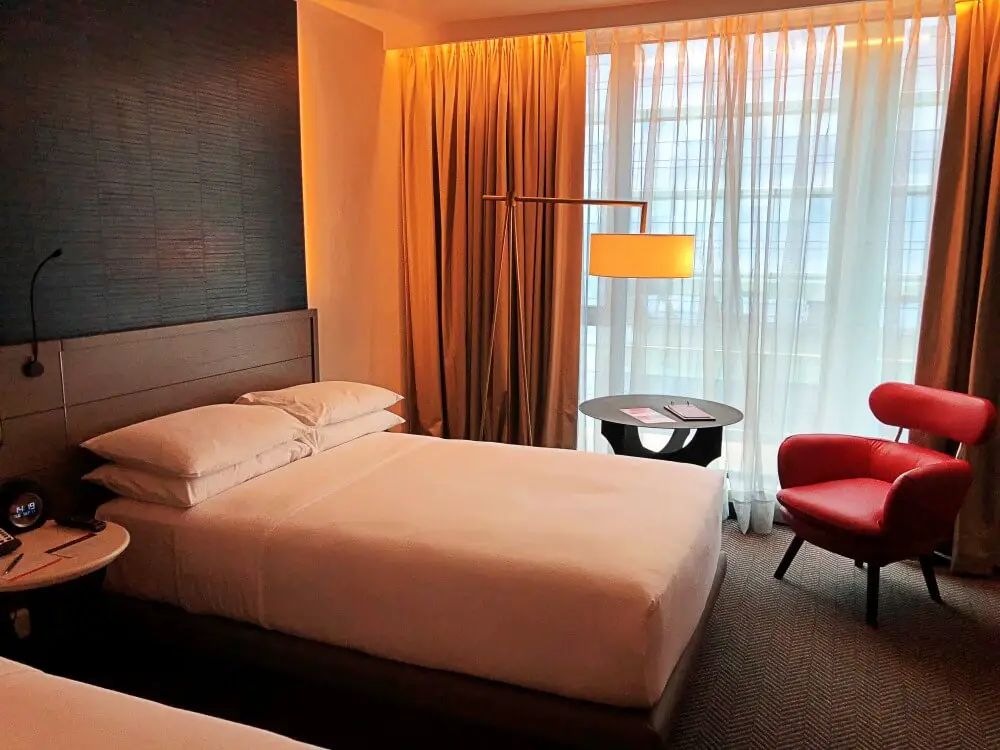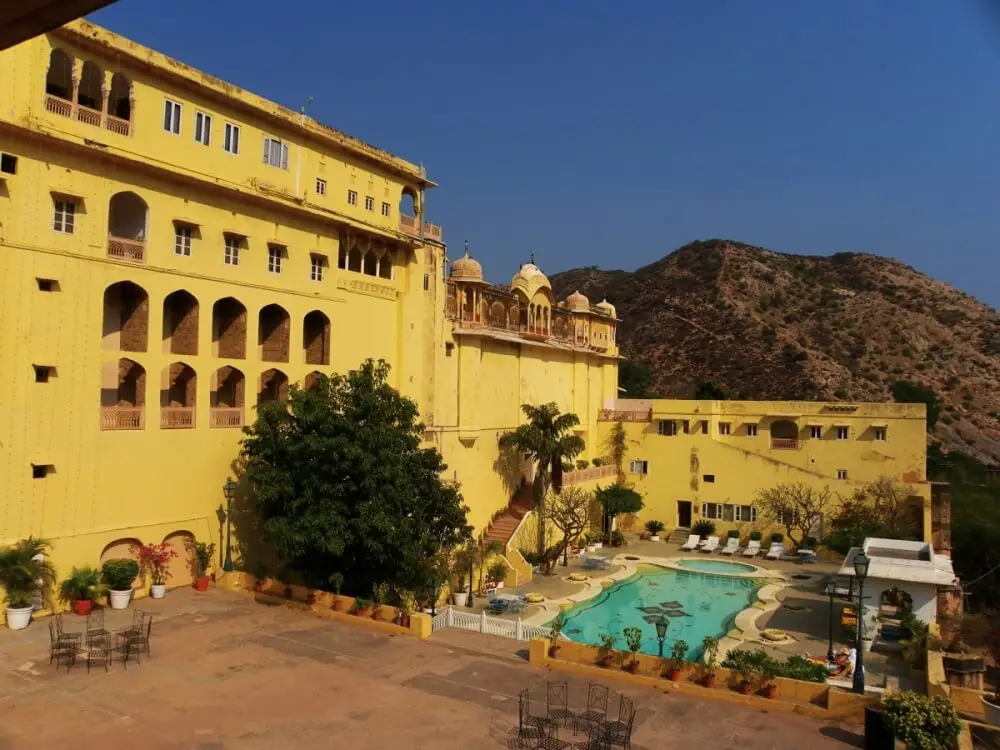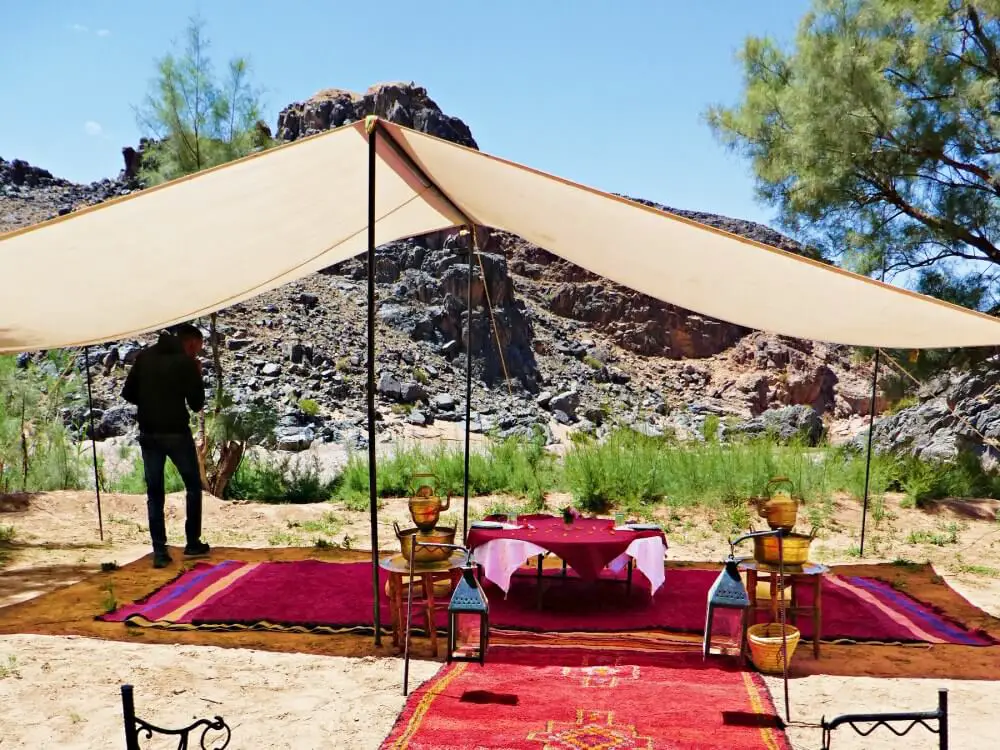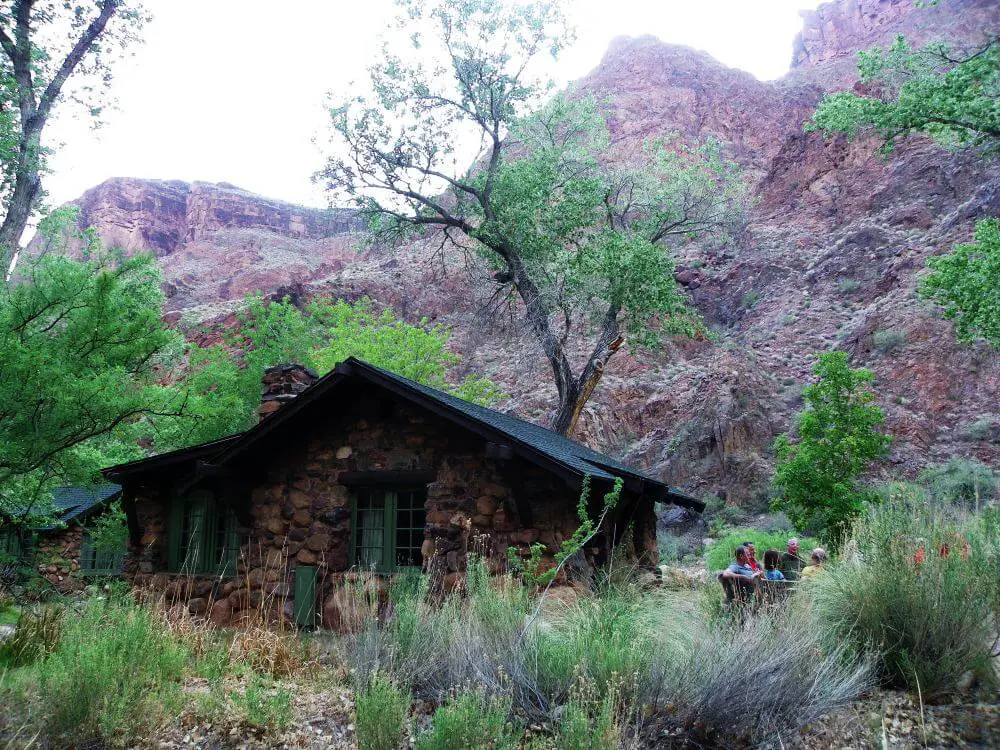Choosing where to stay is a big decision that can have a significant impact on how much you enjoy your trip. I try to balance budget, location, comfort and overall experience.
This may mean staying in an inexpensive but beautiful heritage hotel in India that only has WiFi in the lobby but has gorgeous wall paintings in the room; camping in a national park to be in the middle of nature; splurging on a ryokan (traditional inn) in Japan for a full-on cultural experience; or staying in a basic motel to save money near an incredible dive site.
On this page, you will find Accommodation Guides, an overview of the different types of accommodations available, tips on how to find the perfect hotel for you, and resources to use when you are ready to book your trip.
Please note that some of the links are affiliate links. At no additional cost to you I earn a small commission if you make a purchase. You can read my Disclaimer for more information.
Tips for finding the best hotels
- Book with one of the main hotel booking companies like booking.com or Agoda or with Airbnb
- Read reviews, especially the negative reviews. Booking.com and Trip Advisor both have customer reviews. When reading reviews, always apply your own filter. E.g. I often read reviews complaining that there was no WiFi in the rooms, only in the common areas/ lounge. This doesn’t bother me at all, as I am happy to hang out in the lounge rather than my room.
- Request a specific room if you’ve found one from customer reviews
- Always request a quiet room/ room with a view/ etc. If you don’t ask and someone else does, then chances are that they will get the better room. You may not get it, but it doesn’t hurt to ask.
- Call or email the hotel a few days before you are due to arrive to reconfirm your reservation
- Read my full guide on How to Choose the Perfect Hotel here.
Types of Accommodation
Hotels
Chain hotels
There can be a comfort in chain hotels like Hilton, Marriott or Holiday Inn. There are standards that they must all meet and they have the same amenities and style, so you know what you are getting. It can be comforting to stay somewhere that does not have surprises or the possibility of poor standards. They also have points programs for frequent travelers, so you can earn free stays. When I’m travelling on business and need to know that I will have the amenities I need, I often stay in these hotels.
The downside is that they are all the same and the individual character of the country or city you are in missing. When I am in vacation, I never stay in chain hotels because I want to feel like I am somewhere exotic and really get a sense of the place I am visiting. Chain hotels just don’t allow this.
Boutique hotels
Boutique hotels have a distinct and unique style and an attention to detail that can really enhance your travels. Quality can be patchy, but it is usually good. If being somewhere stylish and chic adds to your vacation experience, then this is a great choice.
Unique hotels
Any hotel that is not a chain or a stylish boutique hotel falls under this category. They may small and family-run or large and incredibly luxurious. They tend to reflect the culture of the country they are in, so that you really get a sense of where you are. They can be funky, such as the Hotel La Residencia in Cadaques Spain that is crammed with Salvador Dali paraphernalia, or historic such as Samode Palace hotel, in a former palace in Rajasthan, India. They can be ultra-modern like the Treehotel in Sweden or very traditional like the Chikusenso, the best ryokan in Japan.
These are the kinds of hotels I like to stay in, as they have lots of character, and that’s what I look for in a hotel when I travel.
Guesthouses, Inns and B and Bss
B and Bs fall into two general categories. There are inns – small often somewhat rustic hotels – that include breakfat in the price. These usually have multiple rooms (maybe about 10-30 or so).
The other kind of B and B is a room in someone’s house. It could be one or two rooms they rent out in what is mainly their home, or it could be 5 or 6 rooms in a very large house, with the owner living in a small separate area. Rooms may come with an ensuite bathroom or a shared bathroom down the hall. There is usually a host who is friendly and knowledgeable about the area, so this is a great way to learn some hidden gems and things to do.
Breakfasts can vary from a very basic help-yourself continental breakfast to a lavish full English/ Irish/ American hot breakfast with bacon, eggs, toast, etc.
Motels
Motels can range from old mom-and-pop motels that are slightly run down to the run-of-the-mill chain. They are typically along strips of rooms with parking in front of the room. Occasionally they have plenty of character, but are often very basic and, in the United States, often reek of bleach or other cleaning products. They are usually cheaper than regular hotels, and I have stayed in many where I was in a place for one or two nights only and really just needed a place to stay.
Apartments or Houses
Staying in an apartment is a great way to live like a local and get a sense of what it is like to live in the country you are visiting. They are also often cheaper than a hotel. There are several options for finding apartments. The two main ones are booking.com and AirBnB.
There are several different options. You can book a room in someone’s house (kind of like a BandB without the breakfast), or book a whole apartment/ house. Sometimes these are apartments/ houses that people live in and they rent out while they are away. These tend to have more character, but some people can find it off-putting staying among other people’s stuff.
Other times they are places that have been set up specifically for renting out to travelers. They can seem less like camping in someone else’s place, but can sometimes be a little sterile, especially if they have been decorated almost exclusively with furnishings from Ikea (not that there’s anything wrong with Ikea – but you could be anywhere).
It’s worth noting that some cities have restrictions on short-term rentals. For example, in New York City, people who rent cannot legally rent out their apartment for less than 30 days. If they won their apartment, that’s different, of course. So, it’s worth checking to make sure you aren’t inadvertently staying in an illegal sublet apartment and get into trouble with the neighbors or the landlord.
It’s also worth thinking about the impact that the ‘shared economy’, as companies like AirBnB and Uber are sometimes called, has on the local community. There have been complaints that in many cities such as Venice, the locals all rent out their apartments to tourists, so that few local people actually live there anymore.
House-swapping and Couchsurfing
These are two ways to save a lot of money because they are both free.
House swapping is where you stay in someone else’s house or apartment while they stay in yours. There are websites to help arrange this.
Couchsurfing is staying for free in someone else’s house. You may sleep on the couch, but they may have a spare bed or even a spare room. There are websites to arrange this. People offer up a bed in their homes to get to meet travelers, so you should spend some time interacting with your host. It is good form (though technically not required) to bring a small gift for your host.
Hostels
In my backpacking days, I have stayed in many a hostel. If you are single, then this can save you a LOT of money. Most hostels these days also have double and triple rooms that are often cheaper than hotels. Hostels are especially common in Europe, Australia and North America, where hotels tend to be more expensive. In Latin America, there are so many cheap hotels that hostels are not quite as common (though there are still many, of course).
Staying in a dorm will save you money. They are also a great way to meet other travelers, as you will hang out in the common areas, not your room. However, they can be noisy and it can be hard to sleep sometimes. Some have kitchens where you can cook, which also helps save money. Many these days have nice hang-out areas and even a bar.
Camping
I hated camping when I was a kid, but have grown to love it – especially when I am in national parks. It’s also a lot cheaper than the national park lodges or hotels.
Tents
If you are on a multi-day trek or heading into the back country, you will need to carry your tent and food. I do this very rarely. Usually I stay in a camp ground that you can drive to, so we keep our stuff on the car and just pitch the tent to sleep in.
A version of this is glamping – I did this in the Sahara Desert in Morocco and it was great – a huge canvas permanently-pitched tent with carpet, a queen-sized bed and a shower. Very nice!
RVs
I went RVing when my 75-year old father visited from Australia. It is more comfortable than a tent, but to be honest, I didn’t love it. There are restrictions on some roads for larger vehicles, and you always have to be aware of where you can get rid of your sewerage. I prefer not to have to deal with this. It does make you very mobile though, and some people really love it, I know.
Cabins
I’m putting this under camping, but cabins can be very rustic or they can be quite fancy. Many national parks have cabins inside or just outside them.
How to Choose a Hotel
Finding the perfect hotel or campground is a very important part of planning a trip. Where you stay can really make or break your vacation. To help you make the right decision, I have a How to Choose a Hotel Guide. This will help you decide how to choose the best hotels for you. The “for you” part is key here. What is a great hotel for me may not be a great hotel for you. My guide goes over what to think about and consider so that you can find the perfect hotel.
Click here to learn tips on How to Choose a Hotel
Best place to book hotels
So, you’ve chosen your hotels. The next step is to book them. Booking accommodation can be tricky. What’s the best way to book hotels? I used to try and book directly with the hotel. But then I went to India, where hotels are notorious for overbooking rooms. I discovered that if there was an issue like this, they always gave preference to someone who had booked through a major hotel booking website, because they didn’t want to upset the website. Much better to upset an individual who they will never see again.
So, what is the best booking site for hotels? For me, the best hotel search engine is booking.com, followed by Agoda. It is not only the best website for hotel deals, it has a huge selection and it allows you to filter by type of accommodation, quality, price, and location. If a hotel you want to stay in is booked out on booking.com, check on Agoda. Many hotels have a certain number of rooms available on each site, and if their allotment is full on one site, they may still have available rooms on another site.
If you are looking for hotels or ready to book, you can go straight to booking.com here and Agoda here.
Accommodation Guides
You can also find accommodation recommendations in my Travel Guides and posts on individual experiences.




